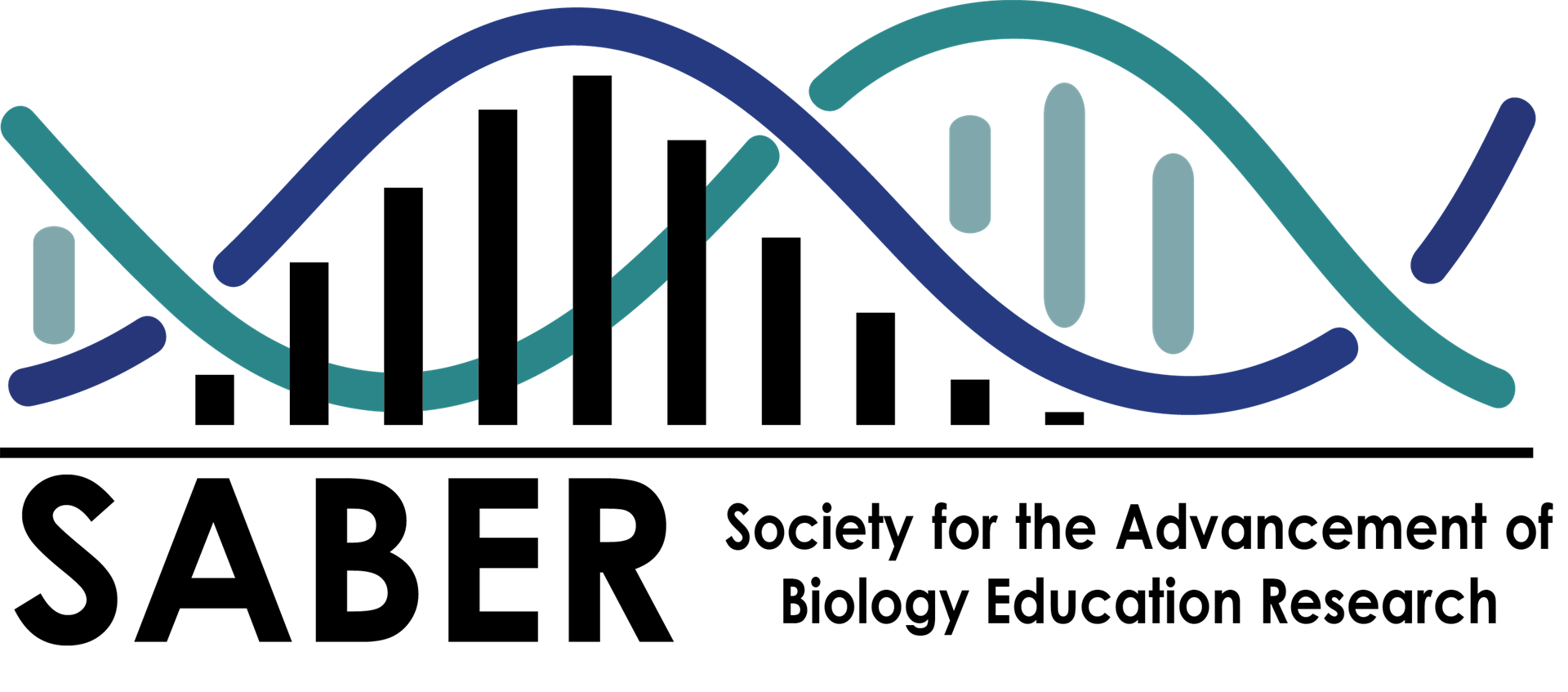SABER's Statement of Solidarity with the Transgender Community
The transgender community deserves to feel safe to express their gender no matter where they are. However, recent legislature and biases threaten people's safety and ability to be their authentic selves. In 2023, 600 bills were introduced into federal and state legislatures across the United States that seek to block trans folx from receiving education, basic healthcare, legal recognition, and the human right to publicly exist. We as an academic community stand in solidarity with the transgender community against these tragic injustices. As a biology education organization, we are committed to providing a safe, welcoming environment to support our students, colleagues, and their families.
Since its founding in 2010, SABER has held its Annual conference at the University of Minnesota - Twin Cities, which resides in a trans sanctuary/refuge state. At the time of the writing of this statement, the state of Minnesota has legislation in place specifying that transgender folx are fully entitled to use the restroom of their choosing, without being singled out or needing to "verify" their gender (https://www.outfront.org/restrooms). Unfortunately, many folx around the country (including folx in trans sanctuary states) cannot live as their authentic selves without fear of violence, bias, or political attack. One of SABER's stated organizational goals is to "strive for an inclusive community", part of which requires us to better understand and respond to the injustices that impact the lives of our students, members, colleagues, and their families. Moving forward, we commit as a professional scientific society to educate ourselves about these injustices and to create a safe space in the places where we convene, whether that be in Minnesota or elsewhere. Furthermore, we stand opposed to systematic anti-trans actions to support our members, students, colleagues, and their families.
A first step to address these injustices is to increase our understanding of the issues faced by transgender folx and how our own biases are potentially contributing to these issues. We have compiled a suite of resources that can help us:
Suggested Articles:
- Anti-Trans Bills: Trans Legislation Tracker
- 'You belong here': Minnesota House passes trans health refuge bill | MPR News
- I came out as trans while CEO of my company. My only regret is not doing it sooner. - LGBTQ Nation
- Transgender Awareness Week: Trans rights under attack. What's next? (usatoday.com)
- Trans Inclusive Practices in the Classroom (nyu.edu)
- Creating an inclusive environment for transgender employees | McKinsey & Company
- Creating a Trans-Inclusive Workplace (hbr.org)
- Transgender Students’ Experiences in Postsecondary | SAHE (colostate.edu)
- How to Support Transgender Students | Harvard Business Publishing Education
- Supporting Transgender People in Higher Education - Indiana University Bloomington
- How to create affirming experiences in college for trans students (opinion) (insidehighered.com)
- Answers to your questions about transgender people, gender identity, and gender expression (apa.org)
Articles for Further Reading:
- Educational Experiences of Transgender People - Williams Institute (ucla.edu)
- Full article: Transgender college students’ mental health: Comparing transgender students to their cisgender peers (tandfonline.com)
- Trans Toolkit for Employers - HRC Foundation (thehrcfoundation.org)
- Transitioning in the Workplace: A Guide for Trans Employees - Human Rights Campaign (hrc.org)
- Trans-Higher-Ed-Aug-2018.pdf (ucla.edu)
- Transgender Inclusion in Higher Education: An Examination of Perceived Inclusion and Personal Wellbeing on Four College Campuses (unk.edu)
- Transgender experiences and transphobia in higher education - Siegel - 2019 - Sociology Compass - Wiley Online Library
- How research is helping win the fight for trans rights | University of California
- Your How-To Guide to Gender Critical Activism – TransAdvocate
- LGBTQ Nation - The Most Followed LGBTQ News Source
- Minnesota's Largest LGBTQ+ Advocacy Organization | OutFront Minnesota
- Human Rights Campaign (hrc.org)
- GLAAD
- LGBTQ Rights | American Civil Liberties Union (aclu.org)
- National Center for Transgender Equality (transequality.org)
- LGBT Foundation - Trans Advocacy
- GATE Homepage - GATE GATE
- Black Trans Advocacy Coalition | Black Trans Rights Are Human Rights
- Gender Justice League
- The TransLatin@ Coalition (translatinacoalition.org)
- Campus Pride | Building Future Leaders & Safer, More Inclusive LGBTQ-Friendly Colleges & Universities
- 500 Queer Scientists Visibility Campaign : 500 Queer Scientists
- Stained Glass Woman | Doc Impossible | Substack
- Grinding Glass Series: Shattered, Growing Up Broken, Slivers
- Femulate
- Rhonda's Escape (rhondasescape.com)
- Activism — ryan cassata
- planet trans (planetrans.org)
Other:
